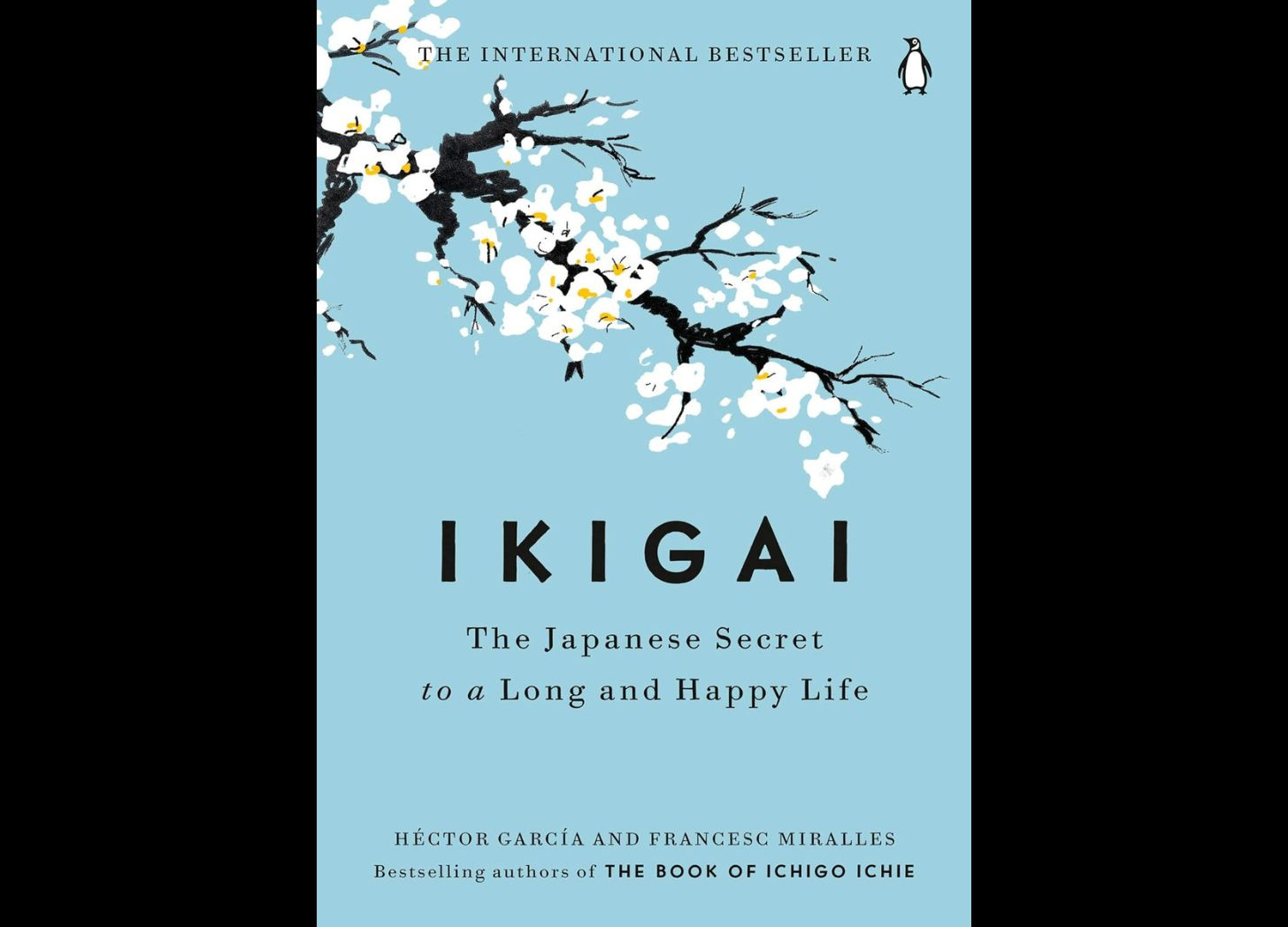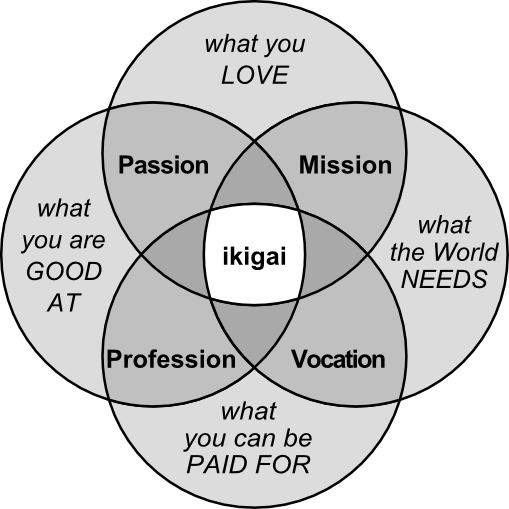Book Byte #58 "Ikagai" by Hector Garcia and Francesc Miralles
The Japanese Secret to a Long and Happy Life
📣 Curious Quotes from the Author
“The grand essentials to happiness in this life are something to do, something to love, and something to hope for.”
“Concentrating on one thing at a time may be the single most important factor in achieving flow.”
“We are what we repeatedly do. Excellence, then, is not an act but a habit.”
“He who has a why to live for can bear with almost any how.”
“Essentials to happiness in this life are something to do, something to love, and something to hope for.”
“Life is not a problem to be solved. Just remember to have something that keeps you busy doing what you love while being surrounded by the people who love you.”
“Walk slowly and you’ll go far.”
“Everything can be taken from a man but one thing: the last of the human freedoms—to choose one’s attitude in any given set of circumstances, to choose one’s own way.”
“There is a tension between what is good for someone and what they want to do. This is because people, especially older people, like to do things as they've always done them. The problem is that when the brain develops ingrained habits, it doesn't need to think anymore. Things get done very quickly and efficiently on automatic pilot, often in a very advantageous way. This creates a tendency to stick to routines, and the only way of breaking these is to confront the brain with new information.”
“There is nothing wrong with enjoying life’s pleasures as long as they do not take control of your life as you enjoy them”
“Concentrating on one thing at a time may be the single most important factor in achieving flow.”
“We have to learn to turn off the autopilot that’s steering us in an endless loop. We all know people who snack while talking on the phone or watching the news. You ask them if the omelet they just ate had onion in it, and they can’t tell you.”
“Our ikigai is different for all of us, but one thing we have in common is that we are all searching for meaning.”
“There is no future, no past. There is only the present.”
“Getting back to Albert Einstein, “a happy man is too satisfied with the present to dwell on the future.”4”
“The happiest people are not the ones who achieve the most. They are the ones who spend more time than others in a state of flow.”
“Be led by your curiosity, and keep busy by doing things that fill you with meaning and happiness.”
“Metabolism slows down 90 percent after 30 minutes of sitting.”
“Morita explained the idea of letting go of negative feelings with the following fable: A donkey that is tied to a post by a rope will keep walking around the post in an attempt to free itself, only to become more immobilized and attached to the post. The same thing applies to people with obsessive thinking who become more trapped in their own suffering when they try to escape from their fears and discomfort”
“We often think that combining tasks will save us time, but scientific evidence shows that it has the opposite effect. Even those who claim to be good at multitasking are not very productive. In fact, they are some of the least productive people. Our brains can take million bits of information but can only actually process of few dozen per second. When we say we're multitasking, what we're really doing is switching back and forth between tasks very quickly. Unfortunately, we're not computers adept at parallel processing. We end up spending all our energy alternative between tasks, instead of focusing on doing one of them well. Concentrating on one thing at a time may be the single most important factor in achieving flow.”
“Presented with new information, the brain creates new connections and is revitalized. This is why it is so important to expose yourself to change, even if stepping outside your comfort zone means feeling a bit of anxiety.”
“Simply interacting with others—playing a game, for example—offers new stimuli and helps prevent the depression that can come with solitude.”
📚 Cognition of the Book’s Big Idea:
A long, happy, and healthy life is dependent on eating healthily and getting lots of exercise, but longevity goes beyond these basic daily habits. Finding a purpose that motivates you every day will help you focus your energies and live longer.
Take in the beauty of imperfection.
In Japanese culture, it is believed that only imperfect objects, such as a cracked teacup, are truly lovely. This concept is called as wabi-sabi, and it might help you appreciate your daily life more. So, instead of striving for perfection, strive to accept the beauty that exists in all of life's blemishes. The consequence will be more energy, fewer worries and a longer life.
🛠️Fixing the Tech Industry
Diagram: Ikigai
Ikigai has been something of an instant classic among tech people. I think that a lot of the people who work in tech don’t find coding or fixing tech as a meaningful life. It’s just something they collect a paycheck on.
My personal experience with ikagai is that I’m trying to find myself after only finding out this diagram existed several years ago. Not everyone is lining up for us to make sure we find our ikigai. With all the Tech layoffs going on, money is tight. Everyone has to make sacrifices for their cushy jobs to keep them or find new ones.
I believe we can all find our Ikigai, but the problem is sometimes we know our Ikigai won’t make us enough money to live a comfortable life. But maybe that not the way as the book says, being comfortable means we stop growing. Periods of Plateuaing and Ungrowth hit us hard when our basic needs are met. The closest I’ve ever gotten to Ikigai was when I was under financial stress or was in the middle of significant health issues. I needed to make changes, and those issues made me make the changes needed.
🤝Collaborate with others with this Social Media Prompt:
What Job, any Job in the world would you consider your dream Ikigai situation?


